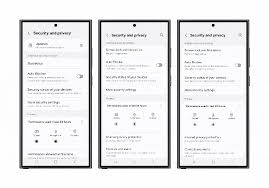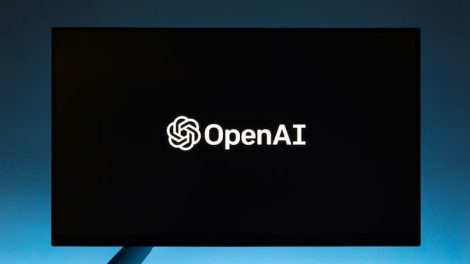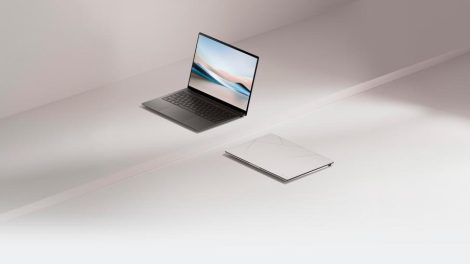Samsung One UI 7 enhances security and privacy in the age of AI, providing users with greater transparency and choice as digital systems become increasingly intelligent and pervasive. As artificial intelligence continues to integrate into everyday technology, the demand for more secure, user-focused software grows exponentially. Samsung’s latest iteration of its proprietary interface seeks to address these concerns by implementing a suite of new features designed to safeguard user data while empowering individuals to make informed decisions about their digital footprint.

Security and privacy are fundamental to building trust in any ecosystem, and One UI 7 sets a new benchmark for how mobile operating systems approach these challenges. The emphasis is clear: give you control over what data is collected, how it is used, and by whom. These developments reflect an industry-wide push toward more ethical and transparent practices in AI, but Samsung’s approach appears particularly user-centric, focusing on both functional enhancements and robust protections against misuse.
Central to the update is the introduction of granular privacy controls. With One UI 7, you gain the ability to manage permissions for apps and services more precisely than ever before. Whether it’s camera access, location tracking, or personal identifiers, Samsung allows you to define how and when these permissions are granted. For instance, you can now permit an app to access your location only while actively using it, rather than granting unrestricted background access. This feature not only strengthens privacy but also encourages developers to adopt best practices in respecting user boundaries.
One of the standout features of the One UI 7 update is the integration of AI-driven tools to identify and mitigate security threats in real time. The system employs machine learning algorithms to detect suspicious activity and notify you immediately, providing actionable recommendations to neutralize potential risks. For example, if an app exhibits unusual behavior or attempts to access restricted permissions, One UI 7 will alert you and offer options to restrict or uninstall the app.
To better understand how these enhancements compare to previous versions and other industry standards, consider the following table, which outlines the key advancements in One UI 7:
| Feature | One UI 6 | One UI 7 | Industry Standard |
|---|---|---|---|
| Granular Privacy Controls | Limited to basic permissions | Fine-tuned, scenario-specific | Varies; Google and Apple lead |
| AI Threat Detection | Absent | Real-time monitoring included | Emerging but not widespread |
| User Transparency Tools | Minimal insights | Comprehensive dashboards | Inconsistent across platforms |
| Default Data Encryption | Standard | End-to-end, expanded coverage | Common among leading firms |
The real-time threat detection mechanism is one of the most significant steps forward. By leveraging AI, Samsung ensures that potential vulnerabilities are flagged and addressed before they can cause harm. This proactive stance marks a shift from traditional reactive measures, placing control firmly in your hands. The accompanying privacy dashboard adds another layer of transparency, offering a detailed view of what data is being accessed and by which apps. This feature is particularly useful for those who want to stay informed about their digital behavior and take steps to reduce unnecessary exposure.
A critical aspect of One UI 7’s commitment to security and privacy is its approach to AI-driven customization. While many AI systems aim to enhance user experience by analyzing behavior and preferences, these capabilities often come at the expense of privacy. Samsung, however, has introduced a model that processes much of this data locally on your device, rather than relying on cloud-based servers. This approach not only enhances security but also ensures that sensitive information remains under your control.
Moreover, One UI 7 introduces a more transparent data-sharing framework. When an app requests access to specific data, the system now provides clear explanations about why the data is needed and how it will be used. This level of transparency encourages informed decision-making and reduces the likelihood of unintentional over-sharing. It also places pressure on developers to justify their data requests, fostering a culture of accountability within the app ecosystem.
Another notable enhancement in One UI 7 is the focus on integrating secure communication channels. Samsung has updated its messaging and calling features to include end-to-end encryption by default, ensuring that your conversations remain private. This is particularly relevant in an age where concerns about surveillance and data breaches are increasingly prevalent.
Beyond individual user protections, One UI 7 also addresses broader security challenges. The update includes strengthened protections against phishing attacks, malware, and other cyber threats. These measures are complemented by regular security patches and updates, which Samsung delivers more frequently than many competitors. For businesses and organizations, this level of security is invaluable, as it helps safeguard sensitive data and maintain operational integrity.
Samsung’s efforts to enhance transparency and choice extend to its ecosystem of connected devices. With One UI 7, you can manage privacy settings across multiple devices from a single interface, streamlining the process of securing your digital life. Whether it’s a smartphone, tablet, or smartwatch, the unified approach ensures consistent protections regardless of the device you’re using.
In terms of user empowerment, One UI 7 takes significant strides. The update emphasizes education, providing you with accessible resources and tutorials to better understand how to protect your privacy. This initiative reflects Samsung’s recognition that technology alone cannot solve security challenges; informed users are a critical part of the equation.
While One UI 7 sets a high standard, it also highlights areas where further improvements could be made. For example, while the enhanced privacy controls are comprehensive, they require you to actively engage with the settings to maximize their benefits. Automating certain protective measures, without compromising choice, could further enhance the user experience. Similarly, while the local processing of data improves security, it may limit the functionality of some AI-driven features compared to cloud-based models. Balancing these trade-offs will be key to future iterations of the software.
As you navigate the complexities of digital privacy and security, Samsung’s One UI 7 offers a robust framework for maintaining control and staying protected. The update’s emphasis on transparency, choice, and proactive threat management sets it apart as a leader in the field. Whether you’re a tech enthusiast or simply someone who values their privacy, these advancements represent a meaningful step forward in the ongoing effort to create a safer and more user-centric digital environment.










Add Comment